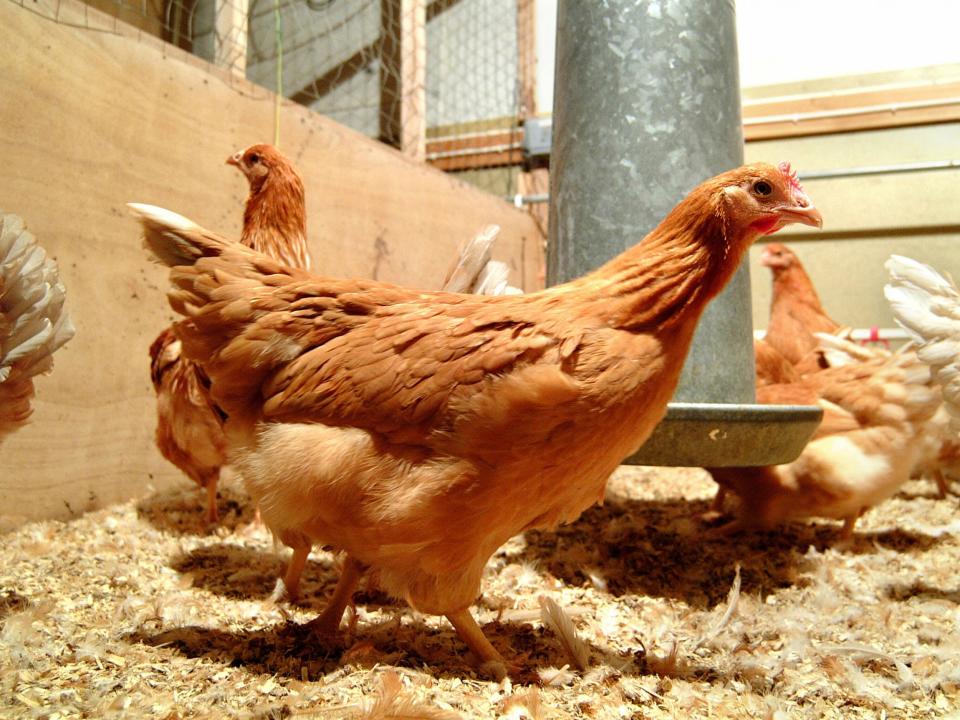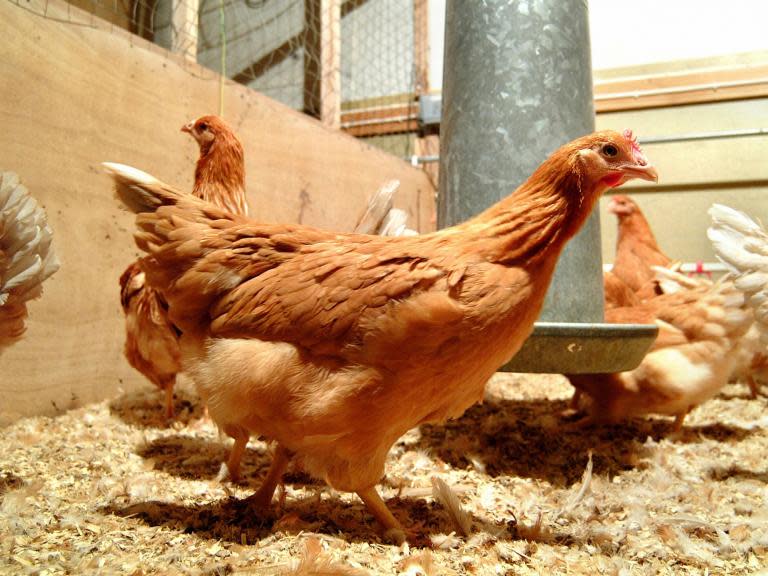Genetically modified chickens lay eggs with cancer-killing chemicals inside
Genetically modified chickens that produce human proteins with anti-cancer effects in their eggs could provide a cost-effective way to produce drugs, research suggests.
Scientists at the University of Edinburgh’s Roslin Institute initially set out to produce proteins that could be used in scientific experiments.
However, they found the drugs they were creating worked as well as those produced using existing methods.
Large quantities of the valuable substances can be extracted from the eggs, with three eggs proving enough to produce an adequate dosage.
The scientists added genes to the chickens’ DNA coding for human protein called IFNalpha2a, which has anti-viral and anti-cancer effects, and another protein called macrophage-CSF, which is involved in the production of white blood cells.
These substances are produced as part of the egg white, and the genes have no harmful effects for the chickens.
“We are not yet producing medicines for people, but this study shows that chickens are commercially viable for producing proteins suitable for drug discovery studies and other applications in biotechnology,” said Professor Helen Sang of the Roslin Institute.
While the new research is still in its early days, the scientists said it provided a “promising proof of concept” that could set the stage for improved drug production.
As chickens are capable of laying up to 300 eggs every year, the scientists suggest this method could provide a cheaper approach than existing methods.
Often producing protein-based drugs to treat cancer and other diseases involves a complex and expensive production and purification process involving mammal cell cultures.
Eggs are already used to grow viruses for use in vaccines, and other animals such as goats have been genetically modified in the past to produce useful proteins in their milk.
The new research was published in the journal BMC Biotechnology.

 Yahoo News
Yahoo News 

